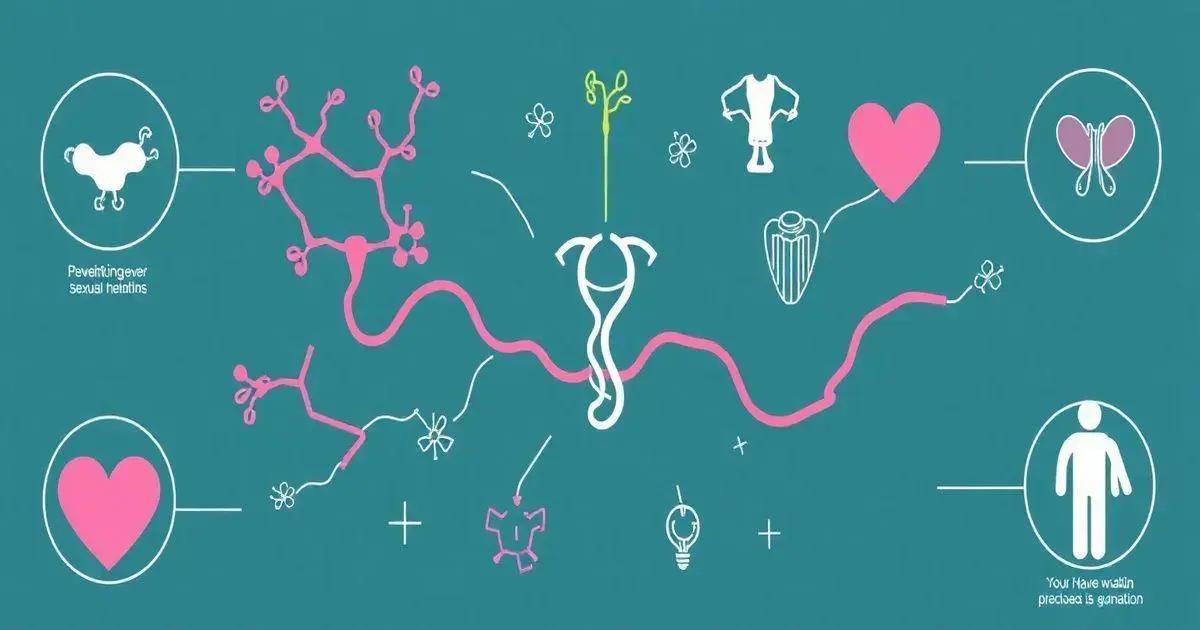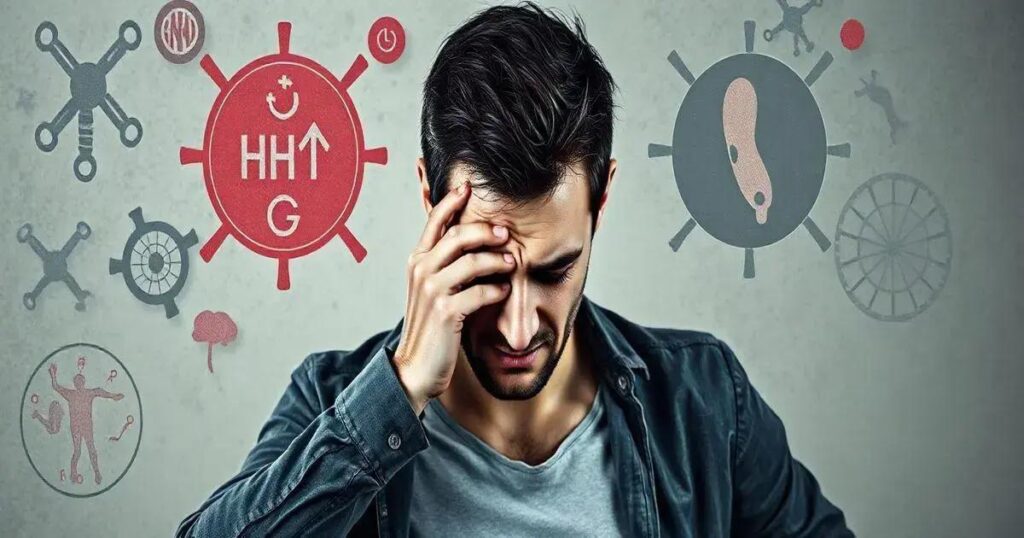Erectile dysfunction (ED) can be influenced by hormonal imbalances, particularly low testosterone levels. Preventative measures, including lifestyle changes and seeking professional help for persistent issues, are essential for maintaining sexual health. Understanding the impact of hormones and addressing any underlying health conditions can significantly improve both erectile function and overall well-being.
Erectile dysfunction and hormonal imbalances are significant issues that affect many men, often going hand in hand. Understanding their connection can be crucial for effective treatment. In this article, we will delve into what erectile dysfunction is, how hormones influence sexual health, and the preventative measures you can take. It’s critical to recognize the signs and know when to seek help from professionals for effective management.
Understanding Erectile Dysfunction

Erectile dysfunction (ED) is a condition where a man faces difficulty achieving or maintaining an erection during sexual activity. This issue can be both frustrating and embarrassing, impacting self-esteem and relationships. It’s essential to understand that ED is not an uncommon condition and can affect men of various ages.
Causes of Erectile Dysfunction
There are numerous factors that can lead to erectile dysfunction, divided primarily into physical and psychological causes. Physical causes include chronic health conditions like diabetes, heart disease, and hypertension. These conditions can damage the blood vessels, reducing blood flow to the penis, which is vital for achieving an erection.
Psychoemotional factors such as stress, anxiety, and depression can also play a significant role. Performance anxiety or relationship issues may further complicate the situation, creating a cycle of ongoing difficulties.
Diagnosing Erectile Dysfunction
To diagnose ED, healthcare providers typically conduct a thorough medical history and physical examination. They may also order blood tests to check hormone levels, as hormonal imbalances can be a contributing factor. Understanding the underlying causes is crucial for effective treatment.
Impact on Daily Life
Erectile dysfunction can significantly impact a man’s quality of life. Beyond physical discomfort, it can lead to emotional distress, decreased self-confidence, and strained relationships. Engaging in open conversations with partners is vital for addressing feelings and concerns.
Importance of Seeking Help
Realizing that ED is a common issue can be the first step toward seeking help. Men are encouraged to consult healthcare providers for proper assessment and to explore suitable treatment options. Early intervention can lead to better outcomes and improve overall well-being.
The Role of Hormones in Sexual Health

The role of hormones in sexual health is crucial for both physical and emotional well-being. Several hormones play significant parts in the function of sexual organs and libido, impacting overall sexual performance.
Key Hormones Involved
Testosterone is perhaps the most well-known hormone related to male sexual health. Produced primarily in the testes, it helps regulate sex drive, erectile function, and sperm production. Lower levels of testosterone are often linked to erectile dysfunction (ED).
Another important hormone is estrogen, primarily involved in the female reproductive system but also present in men. Healthy estrogen levels are essential for maintaining libido and overall sexual function.
How Hormones Affect Sexual Health
Hormonal imbalances can result from various factors, including age, stress, and chronic illnesses. Such imbalances can disrupt normal sexual function, leading to ED or decreased libido. For example, lower testosterone levels can lead to difficulties in achieving and maintaining an erection.
Diagnosis of Hormonal Issues
To assess hormonal levels, healthcare providers may conduct blood tests. These tests can help diagnose underlying hormonal issues that might be contributing to sexual health problems. Understanding your hormone levels is essential for effective treatment.
Treatment Options
Based on the results of hormone testing, treatment options may include hormone replacement therapy, lifestyle changes, or medication. Addressing hormonal imbalances can greatly improve sexual health and enhance the quality of life.
Impact of Hormonal Imbalances on ED

The impact of hormonal imbalances on erectile dysfunction (ED) can be profound and multifaceted. Hormones control many functions in the body, including those involved in sexual health. When balance is disrupted, it can lead to challenges in achieving and maintaining an erection.
How Hormonal Imbalances Occur
Hormonal imbalances can arise from various factors such as aging, chronic illnesses, or lifestyle choices. Conditions like obesity, diabetes, and stress can lower hormone levels, particularly testosterone, affecting sexual function.
Specific Hormones and Their Effects
Low testosterone levels contribute to reduced libido and ED. Studies have shown that men with testosterone deficiency often experience difficulties in sexual performance, making them more vulnerable to ED. Additionally, high levels of prolactin, a hormone responsible for milk production in females, can suppress testosterone, leading to sexual dysfunction.
Psychological Influence
Hormonal imbalances may also influence psychological factors that can exacerbate ED. For example, low testosterone can result in mood swings, anxiety, and depression, all of which can negatively affect sexual performance and desire.
Understanding the Link
Recognizing the link between hormonal imbalances and erectile dysfunction is vital for men experiencing these issues. Consulting a healthcare provider can help in identifying whether hormonal problems are contributing to their sexual health challenges.
Treatment Options for Hormonal Imbalances
Addressing hormonal imbalances can be crucial for restoring sexual function. Treatment options may include hormone replacement therapy, lifestyle changes such as improved diet and exercise, and stress management techniques. Targeting hormonal health can significantly enhance sexual performance and overall well-being.
Preventative Measures and Treatments

Preventative measures and effective treatments for erectile dysfunction (ED) can help men maintain healthy sexual function. Understanding these options is essential for long-term well-being.
Lifestyle Changes
Making certain lifestyle changes can significantly reduce the risk of developing ED. Regular exercise helps improve blood circulation, boost mood, and increase testosterone levels. Aim for at least 150 minutes of moderate physical activity each week.
A balanced diet is also crucial. Consuming fruits, vegetables, whole grains, and lean proteins can promote overall health. Foods rich in antioxidants, like berries and nuts, can particularly support blood flow.
Stress Management
Managing stress is vital for sexual health. Techniques such as yoga, meditation, and deep-breathing exercises can help alleviate anxiety levels, improving sexual function. Communication with partners can also reduce performance pressure, making intimacy more enjoyable.
Medical Treatments
For those experiencing ED, various medical treatments are available. Doctors may prescribe oral medications like sildenafil (Viagra) or tadalafil (Cialis), which enhance blood flow to the penis. These medications can be effective for many men.
Hormone replacement therapy may be indicated if hormonal imbalances are present. This therapy aims to restore normal testosterone levels and improve sexual function.
Regular Check-Ups
Regular medical check-ups are important for monitoring health and identifying potential problems before they develop. Men should discuss any sexual health concerns with their healthcare provider, who can guide them regarding necessary tests and treatments.
Support Groups
Joining a support group can help men dealing with ED share experiences and strategies. These groups provide valuable emotional support and can help break the stigma surrounding this condition.
When to Seek Professional Help

Knowing when to seek professional help for erectile dysfunction (ED) is crucial for maintaining sexual health. If you are experiencing persistent difficulties with erections, it is important to consult a healthcare provider.
Persistent Symptoms
If ED occurs frequently over several weeks or months, it is time to seek professional advice. Occasional difficulties might be linked to stress or fatigue, but ongoing issues may indicate underlying health problems that need to be addressed.
Physical Health Concerns
Moreover, if you have chronic health conditions such as diabetes, heart disease, or high blood pressure, consulting a doctor is essential. These conditions can significantly impact sexual function, so regular evaluations are important to manage your health effectively.
Hormonal Imbalances
If you suspect that hormonal imbalances are contributing to ED, do not hesitate to reach out to a healthcare professional. Low testosterone levels or high prolactin can affect sexual health and require medical intervention.
Emotional and Psychological Issues
Furthermore, if anxiety, depression, or relationship problems are affecting your sexual health, a mental health professional can provide support and therapy. Addressing psychological factors is vital for improving overall sexual function and quality of life.
Unexplained Symptoms
Finally, if you experience other symptoms like pain during intercourse, changes in libido, or changes in physical health, it is crucial to seek medical advice. These symptoms could signify more serious health issues that require prompt attention.
Understanding the Connection Between ED and Hormonal Imbalances
Erectile dysfunction (ED) can be a complex issue influenced by various factors, particularly hormonal imbalances. Recognizing the signs and understanding the role of hormones in sexual health is vital for men facing these challenges.
Taking preventative measures, making lifestyle changes, and seeking timely treatment can significantly enhance sexual function and overall well-being. If persistent symptoms occur, it is essential to consult healthcare professionals for accurate diagnosis and effective treatment options.
By being proactive about sexual health, men can not only improve their quality of life but also strengthen relationships and emotional connections with their partners.
FAQ – Frequently Asked Questions About Erectile Dysfunction and Hormonal Imbalances
What is erectile dysfunction (ED)?
Erectile dysfunction is the inability to achieve or maintain an erection adequate for sexual performance. It can affect men of all ages.
How do hormonal imbalances affect sexual health?
Hormonal imbalances, particularly low testosterone levels, can lead to reduced libido and contribute to erectile dysfunction.
What are some common causes of erectile dysfunction?
Common causes include chronic health conditions like diabetes and heart disease, psychological factors like stress and anxiety, and hormonal imbalances.
When should I seek professional help for ED?
You should seek professional help if you experience persistent symptoms, have underlying health concerns, or feel that emotional or psychological issues are impacting your sexual health.
What lifestyle changes can prevent erectile dysfunction?
Regular exercise, a balanced diet, stress management, and avoiding tobacco and excessive alcohol can help prevent erectile dysfunction.
What treatments are available for erectile dysfunction?
Treatments can include oral medications, hormone replacement therapy, lifestyle changes, and counseling for psychological factors.












